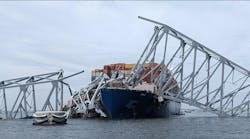Public education is starting to adopt the airlines' model of a la carte pricing. If your kids wants to take a lot of specialized courses and extracurricular activities to prepare themselves for lucrative careers, it's going to cost you plenty in fees. So, say you shell out for all these programs, what's your return on that investment? Maybe the kids eventually get the jobs of their dreams. What's that worth to you?
Supply chain officers face a similar challenge when trying to raise talented individuals in their organizations. According to “The Chief Supply Chain Officer Report 2011,” based on a study conducted by Dr. Hau Lee, Chairman of SCM World, and Kevin O'Marah, an SCM World faculty member, a large majority of the 750 global executives who responded to their survey said they are willing to invest in training and other education to build and maintain talent. In fact, 16% of them said they spend over 5% of the fully loaded cost of personnel on training. The overall average spend on training is about 3% of personnel expenses.
That's impressive. What's surprising to me is how few of these supply chain officers measure the ROI from this investment. You know if they were to drop this much money into an automated storage system or guided vehicles, they'd want to know whether their investment is bearing financial fruit.
Apparently where training of their human resources is concerned, payback is taken on faith. The report's authors indicate that the percentage of respondents who track performance improvement following training as an ROI measure (22%) is dwarfed by the portion that doesn't measure ROI at all (60%). Granted, that's probably not much different from what they—or you and I—do as parents when they pay tuition and activity fees for their kids. They probably just cross their fingers and hope for the best. But for people who pride themselves on measuring supply chain performance, you would think they'd want to gauge the effectiveness of the people they put in charge of something so tightly linked to a company's value proposition.
This study reports that 80% of respondents rank supply chain improvements as an important or very important means for value creation through increasing revenue. Sixty-one percent view such improvements as very important for value creation through long term equity improvements (such as enhanced customer service and loyalty).
“Such results provide a strong signal that viewing supply chain improvement as a foundation for value creation is no longer limited to the more progressive and innovative supply chain companies and that there is now a widespread view (and we expect corresponding action) amongst supply chain executives to ‘go after' value creation,” the report states.
Maybe these executives feel they're going to eventually lose these people they're training anyway, so why spend the money to gauge how much skill and knowledge they've absorbed?
“Senior executives find it difficult to locate these skills in the marketplace and harder still to hold a team together as knowledge builds over the course of a career,” this study concludes.
Here's my guess as to why gauging talent ROI is overlooked: maybe the talent pool is seen as just that—a closed system in which if you lose a talented individual to a competitor you assume you'll fill your vacancy the same way; by steeling it from another competitor. Maybe talent, like waves, ebbs and flows.
But here's another guess: if these execs were to invest in the processes necessary to gauge the effectiveness of training—and then share that feedback with those they're training—maybe those individuals would get the message that they're valued team members and they'd want to stay on that team. In that case, I'd argue ROI assessment has a pretty good ROI.


